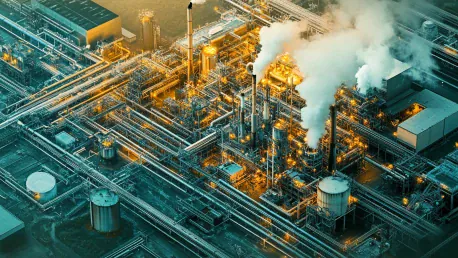United States President Donald Trump’s early executive actions have significant implications for American manufacturing, particularly in the context of his administration’s climate policies. Trump wasted no time in rolling back the green initiatives of his predecessor, former President Joe Biden, which included withdrawing the U.S. from the Paris Climate Agreement, rolling back environmental regulations, and freezing funding for green energy.
Trump’s agenda centers around reviving American industry and reducing reliance on foreign production, but it runs into complications when juxtaposed with his opposition to clean energy. His actions, including plans to cancel the electric vehicle (EV) mandate and reduce regulations promoting clean energy, may thwart investments and incentives vital for U.S. manufacturing development. These decisions pose a risk of undermining his vision of an American manufacturing resurgence by cutting crucial investments and placing the U.S. at odds with the global economy’s growing focus on clean technologies.
Conflicting Agendas: Reviving Industry vs. Opposing Clean Energy
The situation is a convoluted one. Republican Congressman John James praised Trump’s reversal of green policies but simultaneously called for the continuation of “onshoring” automotive jobs and manufacturing inspired by Biden’s Inflation Reduction Act (IRA). This act, although criticized by Trump’s administration, has brought significant green investments and manufacturing jobs to Republican districts. James acknowledged the importance of sector-wide energy tax provisions that manufacturers and job creators rely on.
The green manufacturing boom driven by Biden’s IRA has tangible economic benefits. For instance, in Chatham County, North Carolina, Wolfspeed’s new $5 billion semiconductor plant is a testament to the economic engine spurred by green investments. Since 2022, the private sector has invested $133 billion in clean energy and EV technology, with manufacturing investments reaching $89 billion, tripling over two years. These investments have not only boosted local economies and created jobs but also underscored the critical role that clean energy and green technology play in the present and future industrial landscape.
Economic Benefits of Green Investments
The IRA has channeled $312 billion into planned investments in EV and battery manufacturing, predominantly benefiting Republican-voting districts. These areas, which historically opposed climate-focused legislation, are now witnessing economic boons from green tech policies. Georgia serves as a model for this transformation, with $15 billion invested and 43,000 projected new green jobs in the state. In North Carolina’s Randolph County, a $14 billion investment from the IRA enabled Toyota to establish a manufacturing megasite expected to create 5,000 jobs by 2030, manufacturing enough batteries to power up to 500,000 EVs annually.
As Trump continues rolling back environmental protections and climate agreements, the future of his promised manufacturing revival remains uncertain. His policies may lead to consolidation in the green technology sector, as indicated by his efforts to secure critical minerals for EV batteries—a move aligned with Tesla CEO Elon Musk’s interests. Musk, who serves as a special government employee under Trump, has a stance against regulatory interventions that could benefit Tesla in the long term by reducing competition. Nonetheless, Trump’s climate policy rollbacks could hinder broader green investments crucial for a competitive edge in global manufacturing.
Internal Republican Tensions and Economic Risks
President Donald Trump’s initial executive actions have substantial effects on American manufacturing, particularly regarding his administration’s climate policies. Trump swiftly dismantled the green initiatives of his predecessor, former President Joe Biden. This included pulling the U.S. out of the Paris Climate Agreement, reversing environmental regulations, and halting funding for green energy projects.
Trump’s agenda aims to rejuvenate American industry and decrease reliance on foreign goods; however, it conflicts with his stance against clean energy. His plans to eliminate the electric vehicle (EV) mandate and lessen regulations that support clean energy could hinder investments and incentives critical for the development of U.S. manufacturing. These moves risk undermining his goal of reviving American production by cutting essential investments and putting the U.S. at odds with the global economy’s shift towards clean technologies.
Ultimately, Trump’s opposition to green energy initiatives may create significant barriers for American manufacturing progress and set back advancements in sustainable technologies.









